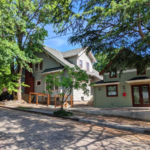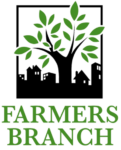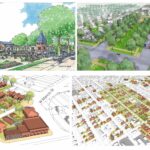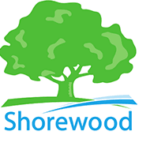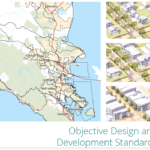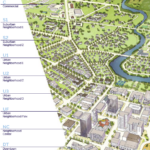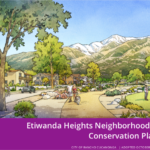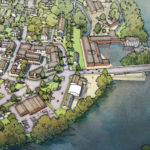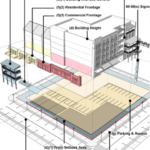Driehaus Award Presented to Codes in Florida, Washington; Honorable Mention to Tennessee FBC
June 9, 2016 — The Form-Based Codes Institute (FBCI) today announced the 2016 Driehaus Form-Based Codes Award is being presented to communities in Florida and Washington for their implementation of innovative and effective codes. Honorable mention is being made to a Tennessee community.
The Driehaus Form-Based Codes Award is sponsored by FBCI with the generous support of the Richard H. Driehaus Charitable Lead Trust. Nominated codes were critiqued by a four-member jury of peers. “The jury was impressed with the overall quality and sophistication of the submissions, indicating the successful evolution of form-based codes across the country,” said Jury Chair Joseph Kohl, Principal at Dover, Kohl & Partners in Coral Gables, Florida.
The jury recognized the CBD Code and Architectural Guidelines for Delray Beach, Fla., with an award, noting that the highly descriptive code and guidelines provide a strong and enforceable framework for good urban development. The jury cited the clear metrics, requirements for parking, active uses facing public spaces, and the workforce housing as worthy of emulation.
“The required architectural guidelines embedded within the code elevate architectural expectations and ensure adherence to the city’s character while responding to climate and respecting history,” according to the awards jury statement. “Its use of a façade proportioning system works irrespective of style. The graphics are simple to reproduce, making the code easy to reproduce and distribute.”
Also earning an award is the Woodland District Hybrid Form Based Code for Lacey, Wash., which the jury declared offers exemplary provisions for transitioning an auto-oriented suburban area into a walkable urban and transit-ready environment. Among the innovations the jury found worthy of emulation are the distinct descriptive intents for each of the three designated districts, provisions for proportional compliance and landscape frontage types, and the definitions and illustrations of street intersections types.
“The jury was impressed with the simplified land-use list and felt that the Code offers an excellent example of how land-use and form regulations can be successfully integrated,” the jurors noted.
The jury gave honorable mention to the Thompson’s Station Land Development Ordinance for Thompson’s Station, Tenn. They found the code to be a well-prepared unified development ordinance that integrates new walkable urban districts within the existing pattern of use-based suburban standards. The jury cited such innovations as by-right development for traditional neighborhood design, the parking requirements that include shared parking credits, and the signage illustrations.
“The jury appreciated the inclusion of growth management strategies that identified Targeted, Intended, and Controlled growth sectors,” the review panel stated. “The Code has good metrics, is easy to reproduce and well organized.”
The other members of this year’s jury were: Jennifer Hurley, President & CEO of Hurley Franks & Associates in Philadelphia; Tony Perez, Director of Form-Based Coding at Opticos Design, Inc. in Berkeley, Calif.; and Tim Polk, Principal at Urban Planning Solutions in Ellenton, Fla.
To review all current and past award winners and to download the codes, please visit the FBCI website.



